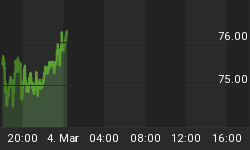The global recovery meme got another series of jolts this morning, as pretty much everything suprised on the downside. In no particular order:
Japan economy shrinks in second quarter in setback for 'Abenomics'
China's economic slowdown and its impact on its Asian neighbors has also heightened the chance that any rebound in growth in July-September will be modest, analysts say.
The gloomy data adds to signs that Japan's economy is at a standstill and heightens pressure on policymakers to offer additional monetary or fiscal stimulus later this year.
Private consumption, which makes up roughly 60 percent of economic activity, fell 0.8 percent from the previous quarter, double the pace expected by analysts.
The data looks likely to force the BOJ to cut its forecast of a 1.5 percent economic expansion for the current fiscal year when it reviews its long-term projections in October.
But the weak consumption underscores a dilemma the central bank faces that may discourage it to expand stimulus.
Economics Minister Akira Amari acknowledged that consumption may have been hit by rising food prices, as the BOJ's easing weakened the yen and pushed up import costs.
Aides close to Abe have signaled that additional monetary easing is unwelcome as further yen falls will push up food costs further and hurt consumption.
Oil slips closer to six-year low on Japan data, oversupply
Oil fell towards six-year lows on Monday on data showing the economy of Japan, the world's third-biggest oil consumer, contracted in the second quarter.
The global oversupply picture was exacerbated by another weekly jump in U.S. oil rig additions on Friday, hinting at growing production, and news that Oman produced a record-breaking 1 million barrels per day in July.
U.S. crude CLc1, or West Texas Intermediate (WTI), for September was trading 65 cents lower at $41.85 a barrel at 1155 GMT, close to its lowest level in more than six years.
Over the past two weeks, U.S. crude prices have fallen by more than 10 percent on U.S. supply concerns. Brent has fallen by around 4 percent.
Iran is expected to increase its oil exports once Western sanctions are lifted after ratification of a recent nuclear deal.
"The oversupply story remains well intact, which fuels the bearish sentiment," said Carsten Fritsch, senior oil analyst at Commerzbank in Frankfurt.
New York state factory activity tumbles to lowest since 2009: NY Fed
Manufacturing activity in New York state plunged to its weakest level in August since 2009 due to steep drops in new orders and shipments, although optimism on future business improved, a New York Federal Reserve survey showed on Monday.
The New York Fed's Empire State general business conditions index tumbled from 3.86 in July to -14.92 in August, its lowest since April 2009.
Economists polled by Reuters had expected the index to rise to 5.00 this month. A reading above zero indicates expansion.
The survey of manufacturing plants in the state is one of the earliest monthly guideposts to U.S. factory conditions.
The new orders index was in negative territory for a third month at -15.70 from -3.50 in July, while shipment activity declined to -13.79 from 7.88 in July.
The survey's gauge on the average employee workweek dropped to -1.82 from 4.26 and the index for the number of employees fell to 1.82 from 3.19.
The prices paid index fell to 7.27 from 7.45 July, while prices received fell to 0.91 from 5.32 the previous month.
Let's summarize:
Japan, after a couple of years of truly epic debt monetization, is heading back into recession. And because one of the main causes of the contraction is rising food prices, further monetary ease apparently isn't an option. That just leaves massive deficit spending, which has been tried with zero success for the past three decades.
The price of oil is plunging during the peak driving season, which is about to end, lowering demand and presumably putting even more downward pressure on prices. A trillion dollars of energy-related junk debt (not mentioned in the above article) will be blowing up shortly.
US manufacturing, which has been flat to down lately, is now falling off the table. Good thing there are so many choice bartending spots opening up for all those laid-off factory workers.
The picture painted by these and other recent data points (see French Growth Stalls and China Fallout Drags Down Emerging Market Currencies) is one of a global financial system slipping into an abyss. And of governments whose only remaining option is massive, imminent devaluation.















